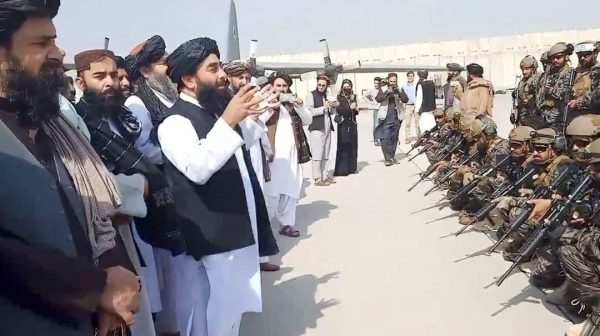The complete collapse of the country could be a serious problem for Europe. Afghanistan has been a forgotten war from the start, says Adam Lammon in Spectator World.
The campaign in Afghanistan began with the goal of America smoking the Taliban out of the country, then suddenly turned into a democratic nation-building project, only to be just as quickly overshadowed by the "real war" that was raging in Iraq.
The author describes how this all seemed to change last August - at least for a while. As the United States began to withdraw from Afghanistan in earnest, the media reacquainted the American public with the twenty-year war.
“The withdrawal was about 'Biden's Saigon' and American weakness, not about actual accountability or the fact that the Afghanistan dossier had already revealed that the war was a farce.
Then, as quickly as it began, the coverage disappeared. Although this was somewhat expected after the US withdrawal, it is especially shocking that the media has now got its hands on the whole thing after weeks of emotional appeals to continue,” writes Lammon.
The article uses the situation of women as an example. The Taliban's rise to power has rightly raised concerns that women will face renewed oppression.
“However, as Cheryl Benard and others have observed, the perception that the United States had 'abandoned' Afghan women was ambiguous because the West's vision of 'Afghan women' was incomplete. Because reporters were mostly based in the cities—which were safer than the war-torn countryside—the media presented a constructed version of what an Afghan woman really was: an elite human rights lawyer or an educator who embraced Western modernity", writes the author.
As an example, he cites poor, traditionally conservative Afghans who have faced unimaginable violence from US drones and the Afghan National Army.
"This level of suffering was unheard of in a bustling metropolis like Kabul," Anand Gopal wrote in the New Yorker, "but in rural enclaves like Sangin, the relentless killing of civilians drew many Afghans to the Taliban."
"Of course, the fact that America's war in Afghanistan killed more than 176,000 people (including 46,000 civilians) and made Afghans poorer hardly penetrated the media bubble that burst when the last American combat boots left the country."
- states the Middle East expert.
According to the author, however, the war against the Afghans did not end, but only progressed. Indeed, even as the U.S. military retreated from the capital, which was easily captured by the stunned Taliban, the Biden administration hid its military weapon and brought out its economic weapon.
It all started in mid-August, when the White House imposed sanctions in response to the Taliban takeover by freezing $9.4 billion in the Afghan central bank's international reserves - most of which were held at the Federal Reserve Bank of New York - and preventing the International Valutaalap and the World Bank should disburse emergency aid worth billions.
For the Afghan economy, which was already struggling with drought, the coronavirus epidemic, and the loss of other foreign aid and investments, this meant a death sentence, the author declares.
The article describes how US sanctions and asset freezes pushed the Afghan economy into freefall. Banks closed, wages went unpaid, and inflation and unemployment skyrocketed as winter set in, raising fears of impending famine. In September, the UN warned that one million children were at imminent risk of starvation. By December, that number had exploded: 23 million Afghans (55 percent of the population), including 14 million children, were facing "extreme hunger."
"Parents started selling their daughters to feed their dwindling families. So much for caring for Afghan women"
Lammon writes.
So far, the Biden administration has staved off widespread famine in Afghanistan with sanctions waivers and more than $800 million in humanitarian aid, the article notes. However, foreign aid – which perpetuates the country's dependence on external aid and inefficiently wastes funds earmarked for NGO overhead costs – is no substitute for a functioning Afghan economy.
"Furthermore, Biden's decision in February to split $7 billion of frozen Afghanistan assets between a humanitarian trust fund and payments to relatives of 9/11 victims is particularly cruel.
Considering that this money does not belong to the Taliban, but to the Afghan people; that Afghans are not to blame for Taliban rule; and that the Afghans were not responsible for 9/11 – that is, none of the hijackers were Afghans – the actions of the Biden administration can be seen as theft rather than a political decision,” writes the author.
“Distributing $3.5 billion in stolen Afghan money to the families of the 9/11 victims is sure to end up in court; and using the other 3.5 billion dollars to forcefully liberalize the Taliban while keeping the Afghan people above their heads is absurd. Both moves indicate that an offended America wants to punish the Afghans for their defeat against the Taliban," says Lammon.
According to the article, the result will be that more Afghans will suffer and their country's problems will become the world's problems. This is the story that the American media is refusing to cover right now.
Spectator/ Neokohn
Featured image: Taliban/Handout via REUTERS













